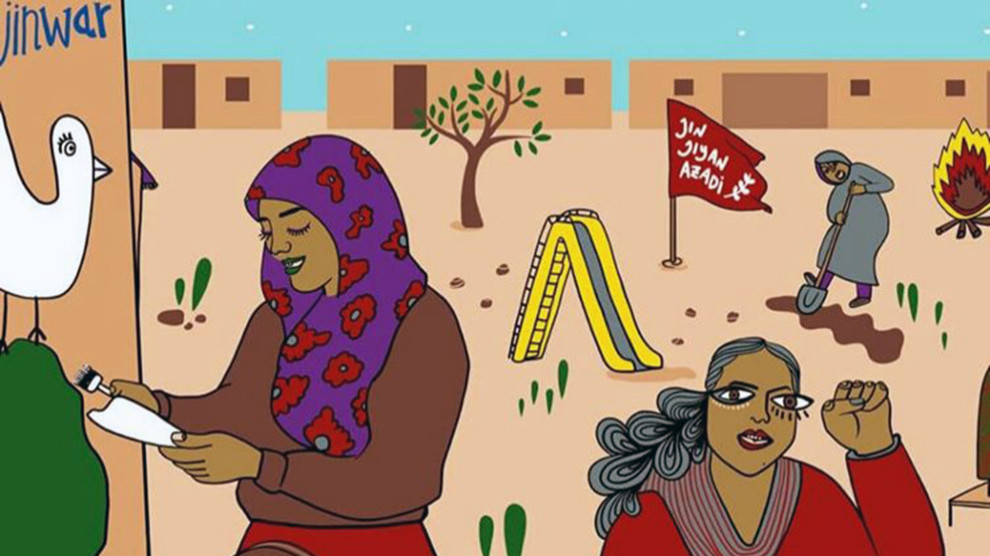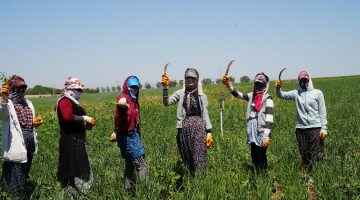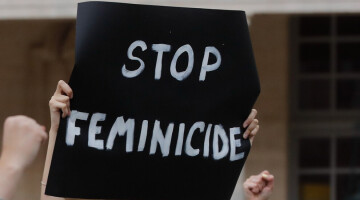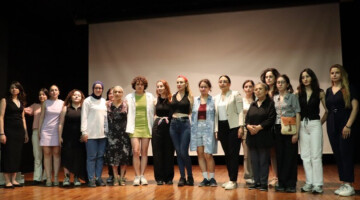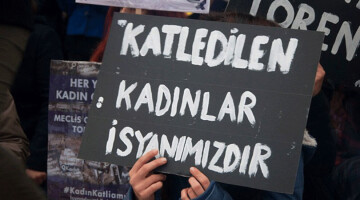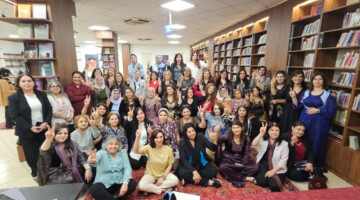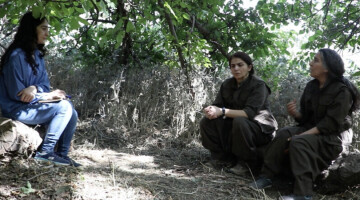On November 25, 1960 the three Mirabel sisters were murdered in the Dominican Republic for fighting against the dictatorship of Trujillo and his fascist government. Three women, who followed their convictions with bravery and selflessness, to fight for what they believed in. While their husbands and comrades were imprisoned, the three sisters were brutally killed by the Trujillo government. The government aimed to quell their struggle, but the people of Dominican Republic were outraged, and intensified the rebellion against Trujillo’s dictatorship. This led to his assassination only six months later, and the government was overthrown.
“We cannot allow our children to grow up in this corrupt and tyrannical regime. We have to fight against it, and I am willing to give up everything, even my life if necessary,” said Patria, one of the Mirabel sisters. “Perhaps what we have most near is death, but that idea does not frighten me. We shall continue to fight for that which is just.” (Maria Teresa). Dictatorship, repression and violence did not stop them fighting for justice in their country. In honour of the three sisters and their struggle, the day of their assassination, November 25, was proclaimed as the International Day for the Elimination of Violence against Women.
Today, in November 2019, once again fascist and patriarchal forces are killing and threatening women, our friends, sisters and comrades. Women, who are on the search for freedom and justice, defending hope for a free society.
On the 12th of October 2019, the co-president of the Syrian Future Party, Hevrîn Xalef, was assassinated in an ambush. As a Kurdish woman and politician she fought for women‘s freedom and the recognition of the self-administration of North and East Syria. She played an important role in sharing the perspective of democratic autonomy and democratic confederalism in Syria and eventually the whole Middle East.
Two days later, on October 14th, Dayika Aqîde, a mother from Gir kelege was killed as part of a convoy to Serê Kaniye, where she went to defend her lands, as a human shield. She is one of the many women and mothers who built the Rojava revolution from the beginning, working with other women as part of the women’s assembly for justice.
One week later, on October 21st, the YPJ fighter Amara Renas [Aziza Jalal] was killed in Sere Kaniye. Her body was mutilated by the occupation forces, just as the body of Barin Kobane, who had been killed during the occupation of Afrin in February 2018.
It reminds us also of the killing of Sakine Cansiz, Fidan Dogan and Leyla Saylemez on the 9th of January 2013 in Paris. The political strategic assassination of women, who have been vanguard in the struggle for peace and justice.
These cases are only a few recent examples where patriarchy shows its most disgusting face, where violence breaks out, where the whole patriarchal system becomes visible, condensed in the attack on a certain woman, in a certain place, in a certain historical configuration.
If we look around the world there is no place, no country where women would not face patriarchal violence. Worldwide every 3rd woman has been beaten by men and up to 70 percent of women experience physical or sexual violence from men in their lifetime. Every day women are killed due to patriarchal violence. The forms of violence are variable, depending on the history, the culture, and the conditions of living. Still it is rooted in the same mentality and system. Throughout the history of patriarchy, the mentality of domination has expressed itself in the politics of war, occupation and colonization. Territory has been seized in order to discover, to own, to control and to extinguish. This logic is lived in the details of daily life, but also in bigger geopolitical scales. The invasion of Shengal [Sinjar] by ISIS in August 2014 is an extreme example of the logic of male domination, culminating in the killing, rape and kidnapping of thousands of Yazidi women.
Colonization has always reached out to extend and subjugate territories and lands of the native population in every continent. The wealth of imperial and colonial powers was built through plundering and the exploitation of natural resources in people’s lands.
There is a parallel between the occupation of land and the occupation of women’s bodies, minds and labor. Women can be considered as the first colony in history. Our bodies, our strength, our work and creativity have all too often served in favor of the patriarchal system.
Today and with the Turkish attempts of occupation these politics continue. Imperial and capitalist power does not seem to have ever enough, not until the last piece of earth becomes profitable.
It is the same logic and mentality that drives the Turkish occupation, the reason that today thousands of people in North and East Syria are being killed and forced to leave their houses.
Lands and people have been divided by state borders that have been drawn to serve and protect the interests of power. Each nation state has implemented violent assimilation policies, annihilating diversity and erasing people’s roots and cultures. As result of these divisive policies different groups and nations have been antagonized against each other, social links have been weakened, and hatred and wars follow.
In order to struggle against this fragmentation and develop a living society based on democratic values, the diversity and unity of these different groups and nations must be preserved.
But wherever there is violence, there is resistance. Women’s will to resist, and the ability to organize and to create free life is older than patriarchy.
Women across the world create alliances and call for common struggle and alternatives which respect diversity.
Women call for peace in the world, wanting a world where they and their children can live peacefully without daily threat and constant pressure. A world where war and the mentality and practice of patriarchal violence has no space, creating an alternative which allows women to develop their culture, live freely according their values and bring equality to the people.
The democratic confederal system in Northern and Eastern Syria is an example of how different social groups and ethnicities can live together peacefully and create alternatives which give opportunities to all people and ensure that the rights of women are protected and their voices heard.
The life experience from Jinwar shows us on a daily basis how alternatives might be developed. Women are creating solutions in all different fields of life. Communal living, economic autonomy, ecology, education, natural health care. All this forms the necessary basis to develop life in freedom and dignity.
From our rooted common history we have learned that our strength is in unity and organization. Only together we can successfully fight the common enemy which is the patriarchal system, its institutions and its oppression.
We call all the women of the world to join this common wave and build a strong enough base, which connects all the women in one struggle towards democratic confederalism. Let us raise our voices together and with common effort based on respect and diversity, fight our common enemy with determination and a strength which belongs to us.
May our resistance be a milestone in history, like the resistance of the Mirabel sisters.
May our steps be fearless and determined, like the struggle of Sakine Cansiz and all the other fallen comrades.
May our resistance be carried by love and mutuality, a bond that will always remind us of our unity and diversity in struggle, like the example of Dayika Aqide.
May our struggle be creative, giving birth to free life and free society every day.

